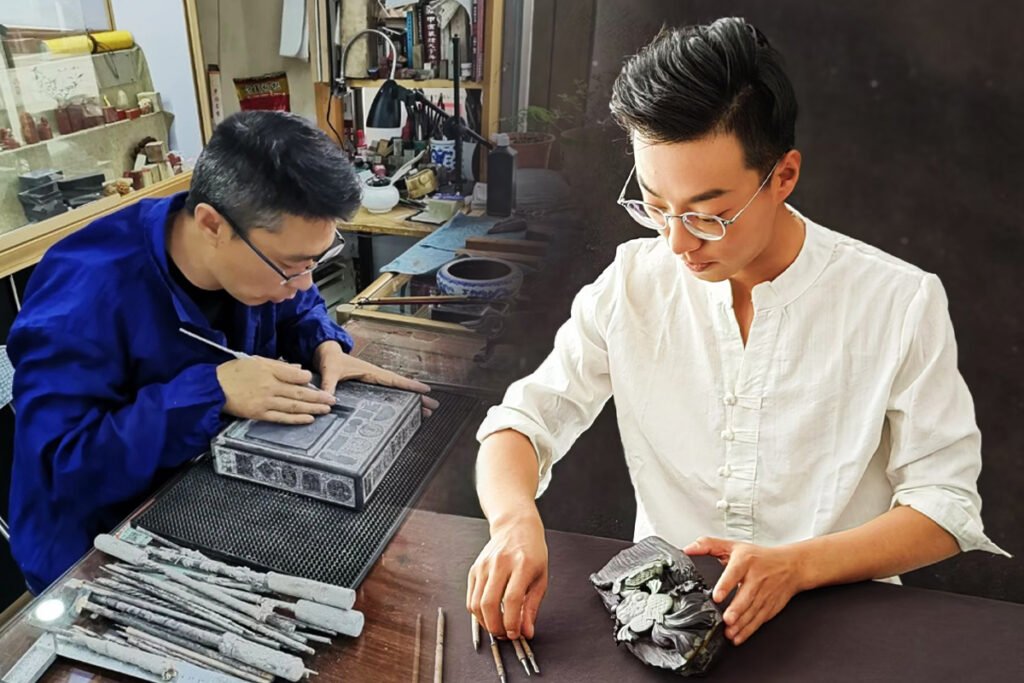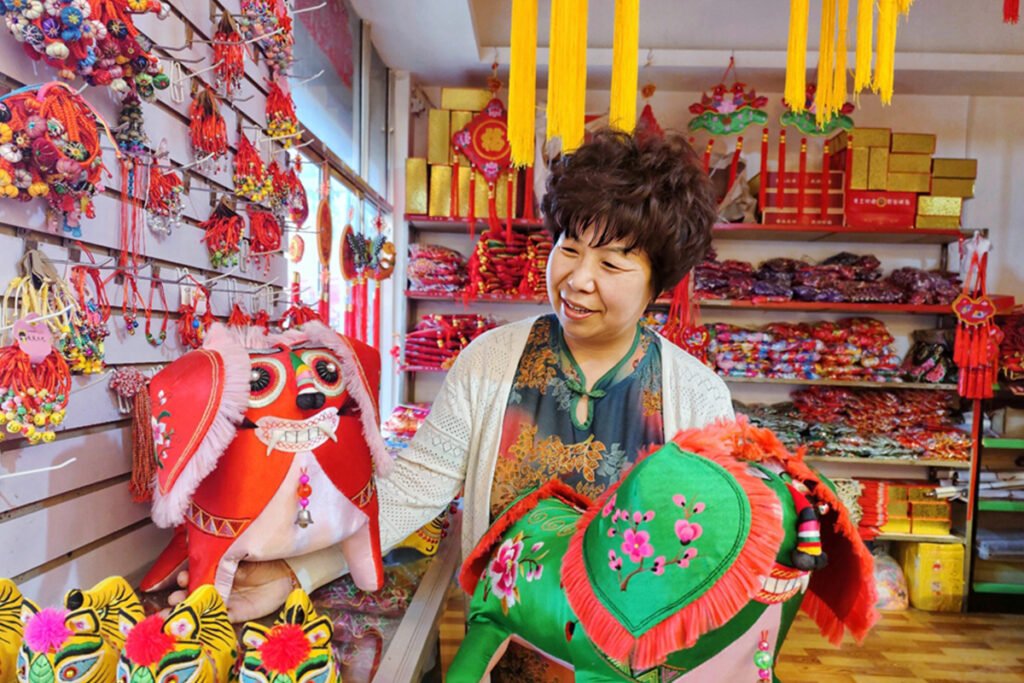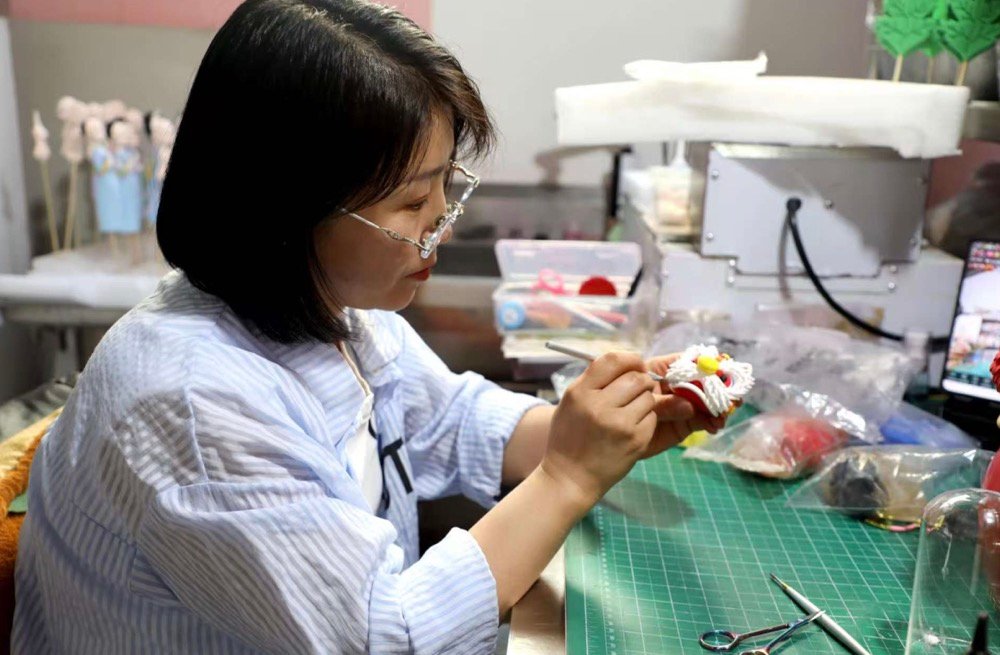Threads Through Time: An Ode to the Guardians of Intangible Heritage
In the mist-draped alleyways of Jiangnan, where cobblestones drink the watery mists, eighty-year-old indigo artisan Granny Zhou still stirs ancestral vats of Persicaria tinctoria, preserving a millennium-old cyan hue;
Within the sunken courtyards of the Loess Plateau, fifth-generation shadow puppeteer Zhang Tieshan carves Investiture of the Gods deities on donkey hides, their silhouettes blazing glory under stage lights;
Beneath the skylight of Minnan’s crimson-brick dwellings, post-90s embroiderer Lin Yue resurrects the lost “Golden Cang” dragon motifs on the ceremonial robes of Tian Gong the Opera Deity, dormant for forty winters;
Where the Helan Mountains stand sentinel, sunlight caresses newly carved inkstones—luminous testament to the Ma family’s heritage guardianship;
Along the Yellow River’s golden banks, artisan Liu Xiaohui etches intricate patterns onto bovine leather, each groove a covenant with tradition;
—Where needles lift more than golden threads, where chisels carve beyond inkstones, there lies the indelible imprint of China’s fading traditional craftsmanship.
Across China’s vast terrain, these custodians of craft knead civilization’s genetic code into warp-weft textiles, luminous shadow puppets, and resplendent embroideries, their hands canyoned with decades of devotion. As tides of mechanical replication erode traditional artistry’s banks, they navigate time’s river in vessels carved from ancestral wisdom, ferrying aesthetic codes of their lineage—living sparks of civilization kindled through artisan spirit. Each palm’s topography cradles history more animate than museum relics; every creation’s core pulses with undimmed cultural vitality. Through Wu Qianxia’s narratives, these guardians’ stories shall unfold, unveiling handiworks saturated with the very essence of their being.



